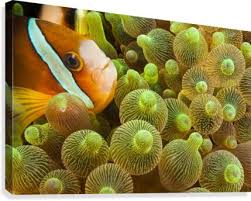For centuries, Chinese fresh tea has been deeply intertwined with Eastern culture, shaping traditions, social interactions, and philosophical thought. More than just a beverage, tea is a symbol of harmony, balance, and mindfulness, reflecting the values of Confucianism, Taoism, and Buddhism. Across China, Japan, Korea, and other Eastern nations, tea plays a vital role in spiritual practices, hospitality, and daily rituals.

This article explores the historical and cultural significance of Chinese tea, its role in Eastern philosophy and art, and its continued influence on modern society.
1. The Origins of Chinese Tea in Eastern Culture
A. Discovery and Early Uses
The history of Chinese tea dates back over 5,000 years, with legend attributing its discovery to Emperor Shen Nong (2737 BCE). According to the tale, tea leaves accidentally fell into his boiling water, and upon drinking it, he discovered its refreshing and medicinal properties.
Early Chinese dynasties, such as the Zhou (1046–256 BCE) and Han (206 BCE–220 CE) Dynasties, used tea primarily for medicinal purposes, believing it could detoxify the body and promote longevity.
B. The Rise of Tea Culture in the Tang and Song Dynasties
During the Tang Dynasty (618–907 CE), tea became a central aspect of Chinese society, spreading across all social classes. The famous “Classic of Tea” (茶经, Cha Jing) by Lu Yu documented tea cultivation, preparation, and its role in spiritual refinement.
The Song Dynasty (960–1279 CE) saw the development of tea ceremonies, where tea drinking became an artistic and meditative practice, influencing neighboring cultures such as Japan and Korea.
2. Tea as a Symbol of Eastern Philosophy
A. Confucianism: Tea and Social Harmony
Confucian philosophy emphasizes rituals, respect, and moral integrity, and tea drinking reflects these values:
✔️ Tea is used in formal gatherings and diplomatic meetings to show respect.
✔️ The act of serving tea to elders symbolizes filial piety and gratitude.
✔️ Tea drinking fosters patience, humility, and sincerity, aligning with Confucian ideals.
B. Taoism: Tea and Natural Balance
Taoism promotes harmony with nature and simplicity, and tea plays a role in spiritual balance:
✔️ Taoist monks drink tea for meditation and enlightenment.
✔️ The balance of Yin (cooling) and Yang (warming) properties in tea represents harmony.
✔️ Tea ceremonies emphasize flowing movement, like the Tao itself.
C. Buddhism: Tea as a Meditative Practice
In Buddhist traditions, tea is used to enhance focus and mindfulness:
✔️ Monks drink tea to stay awake during long meditation sessions.
✔️ The act of preparing and drinking tea is considered a form of Zen practice.
✔️ Tea symbolizes impermanence and the present moment, key Buddhist teachings.
3. Tea in Eastern Social Traditions
A. Tea as a Gesture of Hospitality
✔️ In China, serving tea to guests is a sign of welcome and respect.
✔️ Tea houses have been central meeting places for social and intellectual discussions for centuries.
✔️ In Japan and Korea, tea ceremonies demonstrate grace, humility, and discipline.
B. Tea in Marriage and Family Rituals
✔️ In traditional Chinese weddings, the bride and groom serve tea to their parents as a symbol of gratitude and unity.
✔️ Family gatherings often begin with tea, reinforcing strong intergenerational bonds.
C. Tea and the Art of Conversation
✔️ Many famous Chinese scholars and poets gathered in tea houses to engage in philosophical debates and artistic discussions.
✔️ Even today, business meetings and friendships often begin with a cup of tea.
4. The Spread of Tea Culture Beyond China
A. Japan: The Way of Tea (茶道, Chadō)
✔️ The Japanese tea ceremony (Chadō) was heavily influenced by Zen Buddhism and Chinese tea traditions.
✔️ It emphasizes simplicity, tranquility, and mindfulness, reflecting Eastern spiritual values.
B. Korea: The Art of Tea (다도, Dado)
✔️ Korean tea culture focuses on natural beauty, harmony, and relaxation.
✔️ Tea drinking is an essential part of traditional healing and meditation.
C. Vietnam and Other Southeast Asian Nations
✔️ Chinese tea practices spread to Vietnam, Thailand, and Indonesia, where tea remains an integral part of daily life and religious ceremonies.
5. Tea and Its Influence on Eastern Art and Literature
A. Poetry and Tea
✔️ Tang and Song Dynasty poets wrote about tea as a metaphor for life, time, and human emotions.
✔️ Famous poets like Bai Juyi and Lu Tong described the pleasures of tea drinking in their works.
B. Painting and Calligraphy
✔️ Ancient Chinese paintings often depict tea plantations, scholars enjoying tea, and tea houses.
✔️ Tea calligraphy represents grace and wisdom, reflecting the depth of Eastern culture.
C. Tea in Traditional Theater and Music
✔️ Tea culture appears in Chinese opera, folk songs, and storytelling, reinforcing its cultural significance.
6. Modern Tea Culture in Eastern Societies
A. The Rise of Tea Houses and Tea Artisans
✔️ In China, modern tea houses continue the tradition of socializing and intellectual exchange.
✔️ Artisans focus on preserving traditional tea-making techniques while introducing new blends and flavors.
B. The Influence of Tea in Contemporary Wellness Trends
✔️ Eastern medicine continues to use tea for detoxification, digestion, and relaxation.
✔️ Many people in China, Japan, and Korea practice mindful tea drinking for stress relief.
C. Tea and Eastern Cultural Identity in the Global Market
✔️ The rise of specialty tea brands has introduced Eastern tea traditions to the world.
✔️ Traditional tea ceremonies are now practiced globally as a form of meditation and self-care.
Final Thoughts
Chinese fresh tea is not just a beverage—it is a profound cultural symbol that connects philosophy, tradition, and social values across Eastern civilizations. From Confucian respect and Taoist balance to Buddhist mindfulness, tea embodies the essence of Eastern wisdom.
Even in today’s fast-paced world, tea remains a bridge between the past and present, offering a moment of reflection, harmony, and connection to all who embrace its culture.
🍵 So next time you drink a cup of Chinese tea, remember—you are experiencing a piece of Eastern history and philosophy in every sip.









